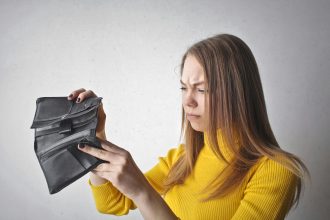Introducing an Eco-Luxury Blanket Brand Utilizing Bio-Based Stretchy Fibers like ROICA V550
I’ve come across some fascinating advancements in the textile industry lately, and one that stands out is ROICA™ V550. This innovative, biodegradable, and bio-based alternative to spandex, developed by Asahi Kasei, offers the same exceptional stretch and softness while boasting a smaller environmental footprint.
Imagine if someone launched a premium blanket brand that incorporated this fiber blend (ROICA combined with modal, Tencel, or organic cotton). These blankets could be soft, breathable, and stretchy, perfectly aligning with the sustainability-conscious and wellness-focused market. They could serve a variety of purposes, from yoga blankets to travel wraps and luxurious home decor.
The marketing angle would focus on several key points:
- Sustainability: Featuring biodegradable stretch and reduced microplastic usage.
- Comfort: Extremely soft, slightly elastic, and temperature-regulating properties.
- Functionality: The stretchiness allows the blankets to conform beautifully, making them ideal for naps or anxiety relief.
This line could be marketed directly to consumers or even offered as an eco-friendly enhancement for hotels and spas. With strong branding and compelling storytelling, I believe there’s significant potential in this market—especially as the trends of cozy, clean, and conscious living continue to rise.
I would love to hear your thoughts, especially from those with sourcing or textile experience. Is this concept feasible on a small-scale production level, or is it more suited to larger fashion brands?










3 Comments
What a fantastic idea! The intersection of sustainability and luxury is definitely a growing niche in the market, and your concept taps right into that. Using ROICA™ V550 along with modal, Tencel, or organic cotton could result in an incredibly appealing product that feels good and does good.
Here are some thoughts:
Sourcing and Scalability: Sourcing bio-based materials like ROICA V550 is becoming more accessible as sustainability becomes a priority for many manufacturers. While starting at a smaller production scale might present challenges in terms of raw material costs and minimum order quantities, there are smaller textile mills and manufacturers specializing in eco-friendly materials that could facilitate your vision. Researching and partnering with them could pave the way for a successful launch.
Marketing Angle: Your marketing strategy is spot on. Highlighting the unique eco-luxury component will resonate with consumers who are increasingly mindful about their purchases. The ability to tell a story about the materials, artisans, and production processes can create a strong emotional connection with potential customers.
Functionality: The stretch and softness of the fabrics will certainly attract those in wellness spaces, such as yoga practitioners and those seeking anxiety-reduction products. You could even consider collaborating with wellness influencers or yoga instructors for marketing and authenticity.
Product Range: Besides blankets, think about expanding the product range to include things like scarves, travel wraps, or even bedding. Offer different sizes or styles to cater to various consumer needs and preferences.
Eco-Friendly Partnerships: Collaborating with eco-conscious hotels and spas for bulk purchases or exclusive products could not only serve as a revenue stream but also elevate brand credibility.
Feedback Loop: As you develop the brand, engaging with potential customers through surveys or focus groups can provide invaluable insights. This could guide product development and marketing strategies to better meet consumer desires.
Overall, while starting with a small batch might have hurdles, the growing interest in sustainable luxury could provide a fertile ground for a brand like yours. It’s definitely a viable venture in today’s market! I’d love to see where this goes!
What an exciting concept! The integration of bio-based fibers like ROICA V550 into eco-luxury products could really redefine consumer expectations in sustainability and comfort. I appreciate how you highlighted the blend with materials such as modal and Tencel, which not only enhances the feel but also aligns with a broader eco-friendly narrative.
In terms of feasibility for small-scale production, I think it’s definitely attainable. While it may require a higher initial investment due to sourcing specialized materials, smaller brands can leverage local suppliers or sustainable startups that are emerging in the textile industry. Collaborating with these suppliers can minimize logistics costs and maintain quality, making it more economically viable.
Additionally, the growing interest in sustainability among consumers could justify a premium price point. To further engage your audience, consider sharing stories about the origins of the materials, the artisans involved in the production, and the lifecycle of the product—this can deepen the emotional connection with your brand. Moreover, transparency in sourcing and manufacturing processes will resonate strongly with today’s conscious consumers.
Overall, this eco-luxury blanket brand has the potential not just to tap into current trends, but to also foster a community of mindful consumers who care about their impact on the planet. Looking forward to seeing how this idea evolves!
Thank you for sharing this insightful and forward-thinking concept. The integration of bio-based, biodegradable fibers like ROICA V550 into luxury blankets is indeed a promising development in sustainable textiles. From a sourcing and production standpoint, small-scale manufacturers can certainly embrace such innovations, especially as the demand for eco-friendly products continues to grow. Collaborating with specialized fiber producers and focusing on local or regional supply chains can help reduce costs and logistics challenges.
Additionally, the versatility of combining ROICA V550 with materials like Tencel or organic cotton opens up opportunities for customization tailored to specific consumer needs—whether for wellness, travel, or home comfort. It’s also worth exploring partnerships with eco-conscious designers and brands to elevate the storytelling around sustainability and luxury.
Overall, this approach aligns well with the current market trends and consumer values. With thoughtful sourcing, transparent storytelling, and quality craftsmanship, small-scale producers can definitely carve out a niche in this space. I look forward to seeing how such innovations evolve and contribute to a more sustainable and comfortable lifestyle.